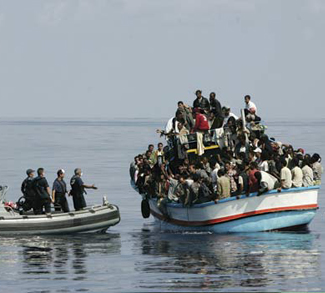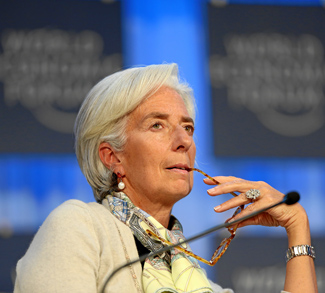Summary
As the Italian debt crisis deepens and the government’s economic policies are being scrutinized, it is important to realize the effects its social policies and strong anti-immigration stance have had on the economy.
Analysis
Italy is a geopolitical symbol between the east and west and attracts thousands of immigrants from Northern Africa and Eastern Europe each year. With the economic crisis of 2007-2011 and Berlusconi’s strong anti-immigrant stance a strong xenophobic sentiment re-emerged in Italy that blamed immigrants for Italy’s decade long track record of inefficiency, corruption and tax evasion. As Italy approves a draft law to ban the burqa this week and an ally of Berlusconi praises the writings of Norway’s mass murder Anders Behring Breivik, it is simultaneously trying to ensure investors that its economy will not collapse. Yet, what Berlusconi’s government like many other conservative governments in Europe have failed to realize is the effect anti-immigration policies have had on the economy.
The Outcome
The Eurozone is on the brink of collapse, as Italy, Europe’s third largest economy, 10-year bond rises over 6 percent. With Italy’s debt reaching a 120% of its gross domestic product, its economy shrinking by 5% in 2009 and its growth rate barely reaching 1% in 2010, Italy’s future looks gloomy to say the least.
According to the World Economic Forum (WEF) the main obstacles to economic growth in Italy have been an ineffective and wasteful government bureaucracy, tax evasion and a weak infrastructure. Yet, the austerity package being pushed by finance minister Tremonti these last couple of weeks barely addresses the impediments identified by the WEF and will instead eliminate 67 billion Euros in spending over the four next years by cutting vital social benefits such as pensions, health care and education.
Berlusconi and his allies from the openly racist Northern League have done little to boost the faith of investors as Berlusconi’s scandalous personal life, the governments’ ties with the mafia and the countless reports of Italy’s large bureaucracy and rampant tax evasion continue making headlines. Italians embarrassed of the prime ministers’ long thread of mishaps voted against Berlusconi and the Northern League in great numbers in recent referendums and regional and municipal elections, marking an important turn in Italian public opinion. As the National Italian Statistics Agency reveals that 8 million Italians are currently living in relative poverty, while over 3 million live in absolute poverty, it seems Italians finally got the message that like most conservative governments currently ruling Europe- the right wing in Italy is full of empty populist rhetoric and unsustainable economic promises.
Italy’s Wealth
Berlusconi throughout his rule has accused immigrants of stealing the jobs of ‘actual’ Italians and being a burden on an already weak economy. Yet, the current crisis demonstrates what happens when migrants are economically necessary but not welcomed. As Europe and Italy tighten the control over their borders, the reality of the matter is that they need immigrants to compensate for Europe’s growing elderly population and to meet the unmet demand for low skilled workers. The images of boats full of immigrants arriving to the Italian island of Lampedusa bombarded in the national and international media show an inaccurate depiction of Italian immigrants. While these images portray refugees as being in need of Italian and European assistance, in actuality it is Italy that is in need of immigrants.
Immigration grew from 1% in 1996 to 7% in 2010 in Italy. Out of this 7% only 1% of immigrants enter the country illegally. The continuous focus on refugees arriving from war torn countries overshadows the tremendous resource immigrants are for the Italian economy. Figures from an Italian Research Institute called Quattro Gatti shows that while immigrants only make up 7% of the population they generate a staggering 10% of the GDP. According to the Italian Newspaper Il Sole 24 Ore, Italy’s immigrants are “responsible for keeping the nation from suffering two heavy recessions in recent years”.
If Italian employers continue seeing immigrants as a source of cheap and low-skilled labour, they will lose out on a great source of human capital. The numbers speak for themselves. While 39.4% of Italians completed high school education, 38.9% of immigrants completed high school. While 12.5% of Italians completed secondary school, 10.2% of immigrants completed secondary school. As Professor Carlo Devillanova from Milan’s Bocconi University explained “Contrary to what many people think, Italy isn’t facing an immigration emergency. Immigrants usually accept any kind of jobs, despite most of them having received a high level of education. They don’t represent a menace to Italian workers. On the contrary, their presence attracts foreign capitals to Italy.”
The Future of Italy
The stubborn conservative right in Italy has ignored the pleas of migrants, its citizens and international voices as it continues to tighten budgets and install hefty austerity packages. Immigrants despite the obstacles placed in front of them have made incredible contributions to Italy’s GDP and have kept the economy running as Italy’s population grows older and the government nurtures Italy’s long battle with corruption. It is time that Italians and the rest of Europe wrap their heads around the fact that their future lies with the immigrants who kept Italy’s economy afloat while all they received in return was racism, violence and exclusion.
The opinions, beliefs, and viewpoints expressed by the authors are theirs alone and don’t reflect any official position of Geopoliticalmonitor.com.




